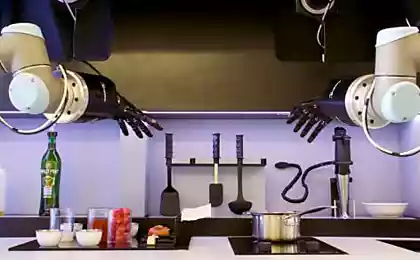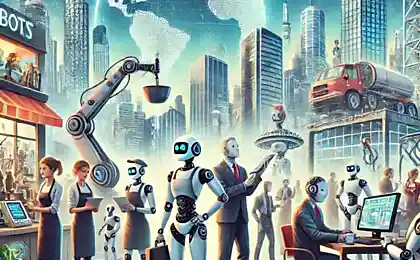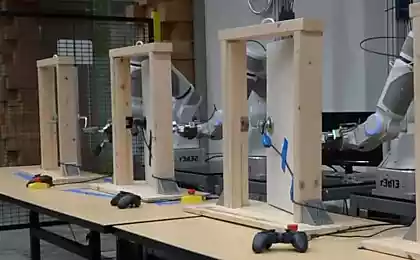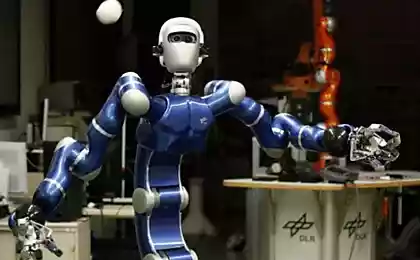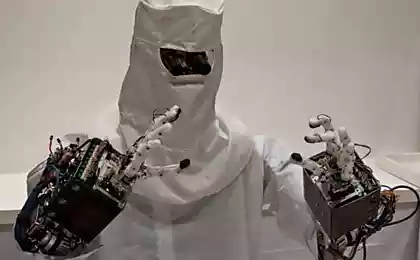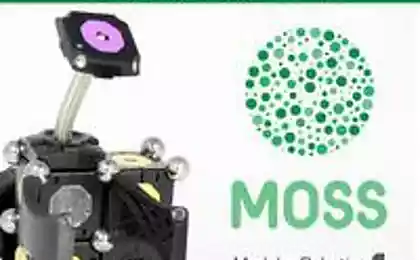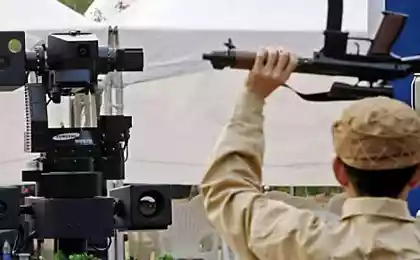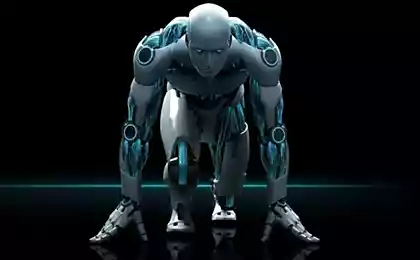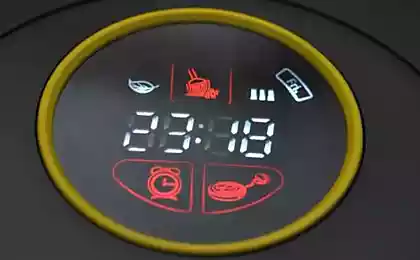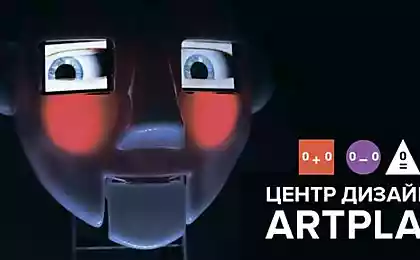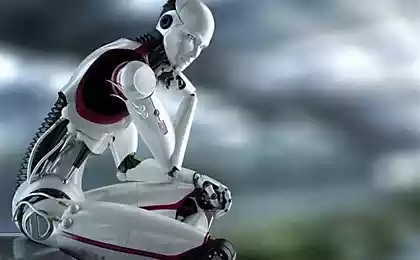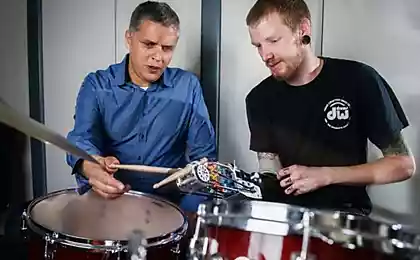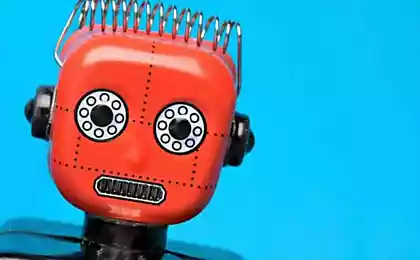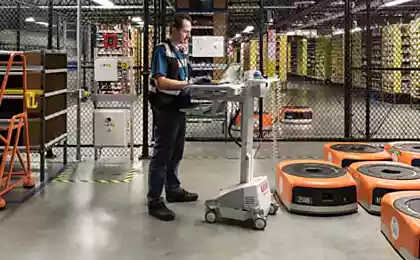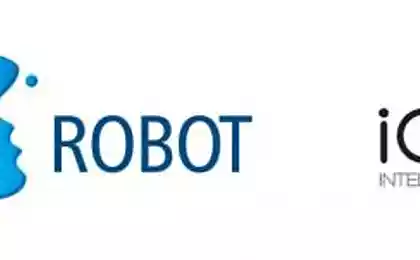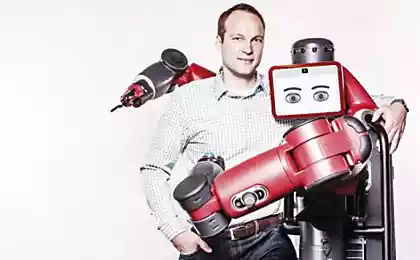915
7 Habits of Highly robots
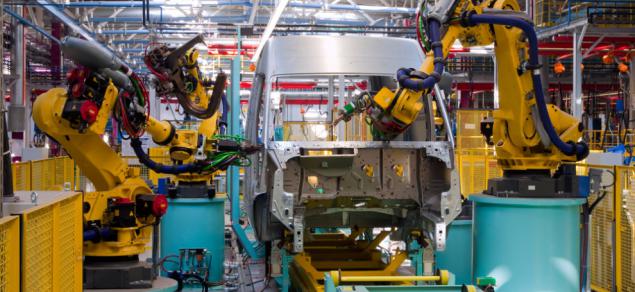
What role will be played by robotic technology in the development of our species?
robots everywhere . Innovations, inventions and gadgets developed every day, robots can now be seen in almost каждом home , as well as the workplace . This article highlights 7 things that роботы doing better , than people on a daily basis, and we want to discuss последствия spread of such technologies for the average worker.
7 "habits" - is only a small part of the things that robots can do better than the people that are being observed in our homes, especially in the working areas.
1. They will
Robots and computers often do everything much faster than humans. CNC machines can produce parts at a fraction of the time that people spend on it, but computers can perform calculations faster than the scientists themselves.
2. More accurate
Accuracy is defined as the "right" actual output compared with the standard. It generally refers to the quality of the work performed. An example is the extent to which the robot produces less waste than man.
3. Trigger
Accuracy is measured largely by how accurately and within the acceptable range if the task is executed. While most experienced people can be extremely accurate in operation, they must be highly concentrated to be as accurate for a long period of time. The robots are designed to be careful while working at a faster pace.
4. Tireless
While even the most tireless worker has its limits, for a few days of work, he finally gives in fatigue and illness. Robots, on the contrary, do not get tired. Well-designed and programmed robots can perform tasks 24/7, for as long as they recharge. This gives the robot a huge advantage over the worker, the person to the same machine never complains!
5. More sensitive
Sensors on the robot provides its input data, which enable it to gain knowledge about the environment. Vision systems, cameras - are sensors that detect light, form and color, which try to mimic our vision. There are other sensors that can replace hearing, touch and movement, and they are more powerful than our own feelings. Very simple, quick example - some robots can capture and catch flying objects on the fly in a split second!
6. More flexible
We humans have evolved due to one factor which our ape brothers never had - the index finger. Through this we can understand and comprehend things that ultimately led us to the development of tools that have become the building blocks of technology that exist today. This ability to understand things and to reach them is called "degree of freedom". Cheloveskaya hand consists of 7 degrees of freedom, while the robot arm may have more, depending on its design. Thus, the robot is flexible depending on the design and size to reach certain areas or subjects, what cheloveskaya hand is not always able to.
7. More durable
With the use of new materials robots will undoubtedly be stronger than it is now. They will be more durable (strong) and impact resistance (hard), allowing them to work even under extreme conditions, which would be unbearable for humans. This allows the robots to perform tasks effectively, prevents failure and, more importantly, the loss of life.
Interestingly, however, that the robot workers often kept separate from humans. Either the robot does its job (in the field of automation), or people doing it yourself with the use of tools (manual labor). There must be a condition in which people and robots can work together in one environment and use each other's strengths. This means that there is a need for more creative and adaptable machines that are also safe.
ROBOT in the game. Robots in the "League of the standard platform" showed themselves in action during the RoboCup German Open 2015 in Magdeburg, Germany, April 24, 2015. Jens Wolf / EPA
Inevitably the time will come when the functions of the robots will not just match what people can do, but far exceed physical and mental limits of our capabilities. So it begs the question: what role robots play in the development of our species?
Улучшение Automation , except even more convenience, will increase the level of productivity of human beings, and ultimately, creativity. The robots will be designed to perform tasks routine for most people. Many of our ezhednenvnye task will be carried out "with one touch of a button" the best version of ourselves.
How to react?
In practice, people will have to invest to improve their skills related to how they can work and understand the technology. Kickback here is better interaction between man and machine and to improve productivity and efficiency for people who have successfully controlled robots.
An example would be surgery . More and more sophisticated and capable cars entering the market each year, the value of surgeons will soon be measured not by how well they can operate on people, and how well they can work with the technology used for the procedure. In addition, governments should make efforts to improve educational policy and training people to be better prepared for the jobs and careers at the highest level. Sooner or later, the growth of automation and intelligent computing will make obsolete manual labor, and with it comes the demand for people with analytical and technical skills.
Robots taking over most of our problems can be very handy, since most of this shift will affect the human spirit. With robots and intelligent machines that automate and accelerate the execution of various tasks, we will have more time to think about large projects facing us. We will have time to think about the ethics and practices that are important to society, and even our place in the infinite universe (our ultimate goal) - all matters for which no machine or a robot will never be able to answer.
Source: geektimes.ru/company/robohunter/blog/253642/
The most beautiful and stunning deserted railway station of the world
Phobos and Deimos: captured asteroids or fragments of Mars?
